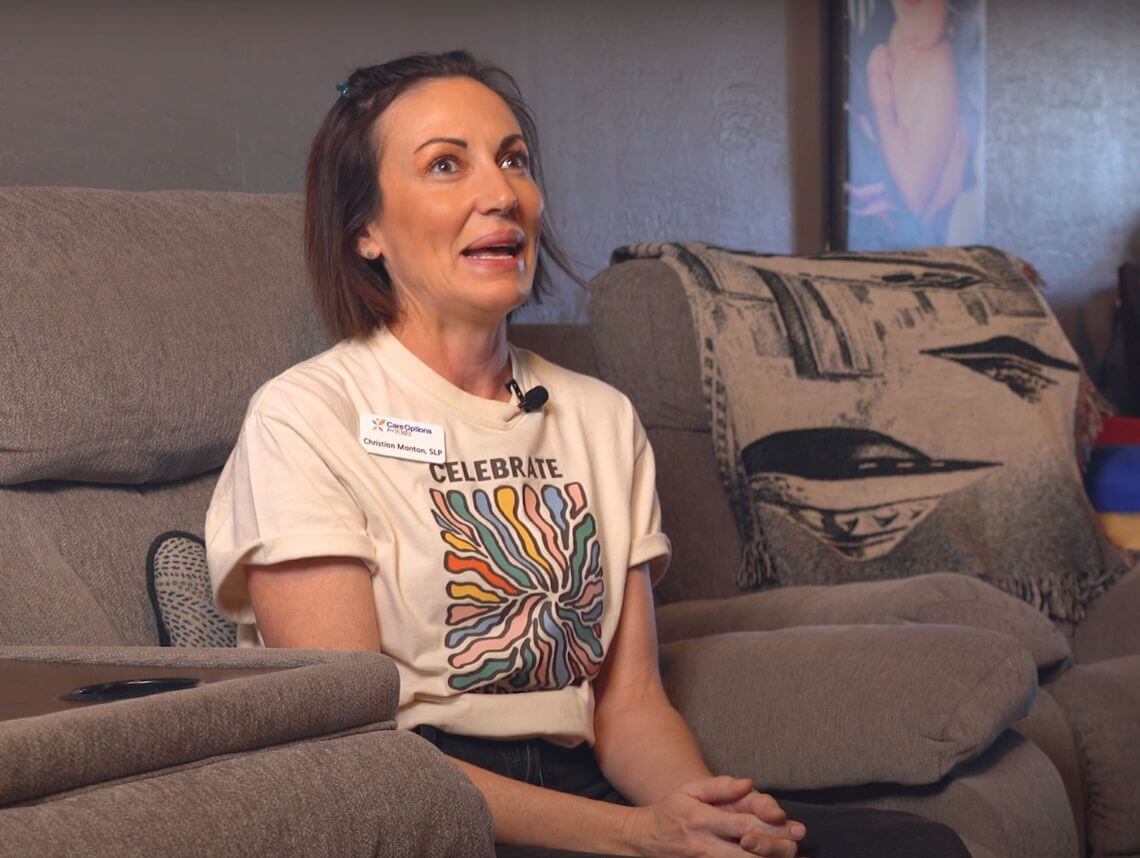Solace Blog
- Activities19
- Autism & Behavioral4
- Community154
- Early Intervention71
- Events & Giving Back20
- Extraordinary Kids22
- Family Caregiver4
- Home Care Therapy60
- News94
- Parent Articles83
- Patient Testimonial21
- Pediatric Therapy77
- Pediatric Therapy Career46
- Private Duty Nursing1
- School-Based Services1
- Telehealth Therapy27
- Tips & Advice66
Summer Reading List: Books to Inspire Therapist Growth
Cooling Off with Aquatic Therapy: Benefits and Best Practices
Sensory Activities For Kids

From School To Home: Christian’s Shift To Impactful Therapy
Speak, Listen, Connect: 6 Communication Strategies for Therapists

Baby’s Growth and Development
The first two years are a crucial time in baby’s growth and development, and your doctor will want to keep close tabs on your baby’s progress. Some pediatricians’ schedules will vary slightly, but the American Academy of Pediatrics (AAP) recommends babies get checkups at birth, 3 to 5 days after birth and then at 1, 2, 4, 6, 9, 12, 15, 18 and 24 months. Here’s what will likely happen at each of them.
Within 24 Hours of Birth:
A pediatrician should examine baby in the hospital within 24 hours of birth. “We do a full exam, looking for normal body function. We look for basic newborn reflexes, skin tone, alertness and hip stability.
Taking Measurements:
The doctor will always measure baby’s length, weight and head circumference. These measurements will be recorded on a growth chart, so you’ll be able to see how baby compares to other infants his age to make sure there are no signs of problems.
Physical Exam:
Baby will get a head-to-toe exam from the doctor at each visit too — ears, eyes, mouth, skin, heart and lungs, abdomen, hips and legs, and genitalia will all get examined to be sure they look healthy. In the beginning, the doctor will check the soft spots on baby’s head, which typically disappear within 12 to 18 months when the skull bones fuse together. They’ll also check the shape of baby’s head to make sure it’s rounding out nicely.
3 To 5 Days After Birth:
Your pediatrician will likely ask to see baby sometime in his first week to make sure everything still seems to be going well. The doctor will measure baby to make sure his growth is on track, make sure they are eating enough and perform another physical exam.
1 Month:
At baby’s one-month visit, your pediatrician will do all the basics — take measurements, do developmental surveillance, answer any questions the parents might have and make sure the caregivers are feeling ok.
2 Months:
During the two-month visit, your doctor will examine the basics as usual — measurements, development and baby’s body. Be ready for your baby to get a heck of a lot of shots!
4 Months:
Baby’s getting bigger! At baby’s four-month checkup, expect the standard procedures — measuring baby, developmental and a physical exam.
6 Months, 9 Months, 12 Months, 15 Months, 18 Months and 24 Months:
The physician will continue to record your babies growth, answer any questions and immunize your baby if you choose too. All of these appointments are crucial for the development of your baby and the parents understanding the development of their baby. Solace has an experienced staff of OT, PT and speech clinicians that can provide the help needed when a concern arises with your child’s development.
Share this Post